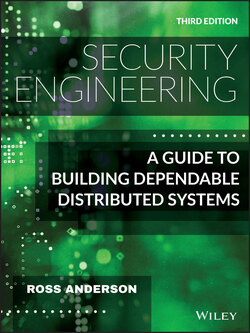Читать книгу Security Engineering - Ross Anderson - Страница 117
3.6 Summary
ОглавлениеPsychology matters to the security engineer, because of deception and because of usability. Most real attacks nowadays target the user. Various kinds of phishing are the main national-security threat, the principal means of developing and maintaining the cybercrime infrastructure, and one of the principal threats to online banking systems. Other forms of deception account for much of the rest of the cybercrime ecosystem, which is roughly equal to legacy crime in both volume and value.
Part of the remedy is security usability, yet research in this field was long neglected, being seen as less glamorous than cryptography or operating systems. That was a serious error on our part, and from the mid-2000s we have started to realise the importance of making it easier for ordinary people to use systems in safe ways. Since the mid-2010s we've also started to realise that we also have to make things easier for ordinary programmers; many of the security bugs that have broken real systems have been the result of tools that were just too hard to use, from cryptographic APIs that used unsafe defaults to the C programming language. Getting usability right also helps business directly: PayPal has built a $100bn business through being a safer and more convenient way to shop online9.
In this chapter, we took a whistle-stop tour through psychology research relevant to deception and to the kinds of errors people make, and then tackled authentication as a case study. Much of the early work on security usability focused on password systems, which raise dozens of interesting questions. We now have more and more data not just on things we can measure in the lab such as guessability, memorability, and user trainability, but also on factors that can only be observed in the field such as how real systems break, how real attacks scale and how the incentives facing different players lead to unsafe equilibria.
At the end of the first workshop on security and human behavior in 2008, the psychologist Nick Humphrey summed up a long discussion on risk. “We're all agreed,” he said, “that people pay too much attention to terrorism and not enough to cybercrime. But to a psychologist this is obvious. If you want people to be more relaxed in airports, take away the tanks and guns, put in some nice sofas and Mozart in the loudspeakers, and people will relax soon enough. And if you want people to be more wary online, make everyone use Jaws as their screen saver. But that's not going to happen as the computer industry goes out of its way to make computers seem a lot less scary than they used to be.” And of course governments want people to be anxious about terrorism, as it bids up the police budgets and helps politicians get re-elected. So we give people the wrong signals as well as spending our money on the wrong things. Understanding the many tensions between the demands of psychology, economics and engineering is essential to building robust systems at global scale.
